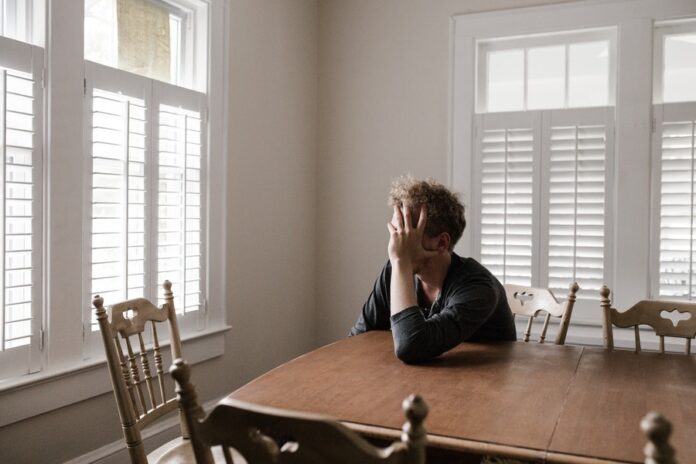Sometimes we feel down and have a sense of sadness. It is normal, but when such feelings persist for too long without professional help, it may lead to physical and behavioral changes.
Knowing the signs of depression can help in the management and cure of the condition. Depression affects the way you think, work, or enjoy life. It makes it harder to function or do daily activities. Seeking help early from professionals is advisable.
Knowing the causes of depression and how to prevent or deal with such causes is also advisable. Some of the causes of depression are;
- Physical or emotional abuse
- Divorce, grief, or any major life events
- Personal problems, illnesses, and medications
- Age
- Conflicts
- Genetics
- Substance abuse and alcoholism
Mental health specialists can diagnose, manage, and help prevent depression. The first step to healing from depression is diagnosis. Below are some signs of depression. Do not despair as a caregiver or guardian of someone suffering from depression.
People recover from depression with proper coping and management strategies. With the right help, they can manage depression.
Signs of depression
- Change in life outlook and loss of interest
Depression starts with a feeling of hopelessness or helplessness. Some people also feel a sense of guilt and may experience self-hate and low self-esteem.
Loss of interest in things and activities that were interesting before could also be a sign of depression.
- Anxiety
If you are overly anxious, it may be a sign of depression. Some of the symptoms of anxiety are; feeling tense, nervousness, and panic attacks.
Heavy sweating, trouble focusing, and muscle twitching are also common signs. Mood swings and irritability are other common signs of anxiety.
- Appetite fluctuations and weight changes
People react differently to depression. Some people will gain weight due to an increase in appetite, while others may lose appetite and may not eat at all. That can cause drastic weight loss.
- Fatigue and insomnia
Fatigue may be due to lack of sleep due to emotional disturbances that may have led to depression. Due to insomnia, anxiety problems may aggravate and make depression management harder.
- Escapist behavior
Watch out for substance abuse, compulsive, and reckless behaviors. Depression makes people join dangerous sports, gambling, or alcoholism.
A sudden behavior change could be a coping mechanism for someone struggling with depression. Isolation may also help them cope, and you may notice that some people may live in isolation from friends and family.
6. Difficulty concentrating or making decisions
Difficulty concentrating or making decisions is a common symptom of depression. When someone is depressed, they may find it challenging to focus their attention and maintain mental clarity.
This can affect their ability to concentrate on tasks, follow through with responsibilities, and make decisions effectively.
They may feel mentally foggy, have trouble organizing their thoughts, and experience a general sense of confusion.
7. Sleep disturbances
Sleep disturbances are another common symptom of depression.
It’s important to note that sleep disturbances can both contribute to and worsen depression symptoms. Addressing sleep problems is an essential aspect of managing depression.
If you’re experiencing sleep disturbances along with other signs of depression, it’s advisable to seek professional help from a healthcare provider or mental health professional.
8. Fatigue or loss of energy
Fatigue or loss of energy is a common symptom of depression. It refers to a persistent state of feeling physically and mentally tired, even after getting enough sleep or rest.
People with depression may struggle to find the energy to engage in daily activities, and simple tasks may feel overwhelming.
They may also experience slowed movements and speech, along with physical sensations of heaviness or achiness.
Recommended Reading :
- 6 Diet Plans You Should Look Into When Losing Weight
- Importance of Consistent Dental Checkups
- The Benefits of Drug Testing
- Unique Benefits of Outdoor Exercise for the Depressed
Treatment of depression
Therapists may recommend the use of antidepressants for severe depression cases. But talk therapy may help in recovery and is the best method as there are no side effects. Effective depression treatment options are;
- Interpersonal therapy
- Depression treatment centers
- Problem-solving treatment approach
- Cognitive-behavioral therapy
- Lifestyle changes (exercise, diet, sleep)
- Social support (family, friends, support groups)
- Stress management techniques (mindfulness, deep breathing)
- Establishing routine and structure
- Self-care activities
- Seeking professional help (psychiatrists, psychologists)
The type of treatment method for depression will depend on the cause of depression, the severity of the condition, and the choice of therapists. Choosing professional depression treatment specialists with experience and expertise can help manage or cure depression fast. People are unique, and they will cope with depression differently. Effective depression treatment options also differ. Professional depression therapists can help you choose the best treatment option for you or your loved one.






















